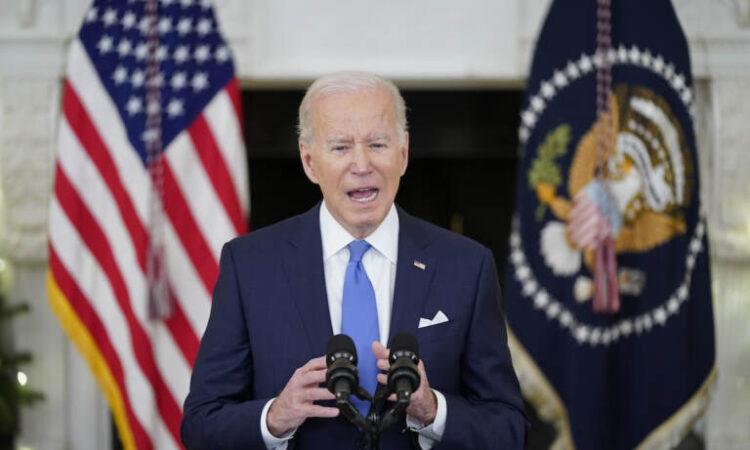
By Lynne Marek, Lead Editor
Credit card and debit card swipe fees took center stage at a Capitol Hill hearing Thursday, with a partisan clash over efforts to lower fees.
The House Financial Services Subcommittee on Financial Institutions and Monetary Policy took up the issues of fees charged by card issuers for credit and debit transactions. It tackled late fees paid by credit card holders for tardy payments as well as fees merchants pay to process debit card transactions.
Specifically, the subcommittee addressed the Consumer Financial Protection Bureau’s finalization this week of a regulation that aims to reduce credit card late fees. The CFPB proposal is a part of a Biden administration campaign to curb what it calls “junk fees” bearing down on American consumers. It aims to cut the typical credit card late fee banks can charge to US$8, from US$32.
Shifting economic conditions are limiting consumers’ access to short-term financing, leaving near-prime consumers searching for more options.
The CFPB’s move to chop the fees has sparked debate over the past year since it was introduced, with bank interests railing that a reduced rate won’t cover the costs of tardy payments; will increase late payments; and will lead to higher interest rates for all borrowers.
Indeed, the US Chamber of Commerce and other organizations, including the American Bankers Association and the Consumer Bankers Association, immediately filed a lawsuit in federal court in Texas this week to block implementation of the new regulation.
“All Americans should be outraged that the cost of credit will skyrocket and access to it will be meaningfully restricted in the name of politics,” said the subcommittee’s chairman, Kentucky Republican Andy Barr, in opening the hearing. “The credit card late fee rule punishes borrowers who pay on time to subsidize those who don’t.”
The subcommittee also took up a legislative proposal by Republican Rep. Blaine Luetkemeyer, of Missouri, to delay implementation of a Federal Reserve Board proposal to lower a cap on debit card transaction fees.
Similarly, the bank and card trade groups have argued that the Fed’s plan to reduce that cap is similarly wrong-headed, with too little research into the issue. Nonetheless, the Fed presented extensive data to back its proposal when it was disclosed last October. It has also extended a period during which it’s willing to receive public comment by several months to May.
Luetkemeyer’s bill, HR 7531 introduced Tuesday, would force the Fed to further study the impact of the proposal and report back to Congress before finalizing the rule.
In addition to criticizing the CBPB’s late fee proposal as the “politicization of financial regulation,” Luetkemeyer separately plugged his legislation to thwart the Fed from moving ahead with a lower cap on debit card transaction fees, saying he was concerned about it negatively affecting small banks.
“I’m worried about the Federal Reserve’s shoddy proposed Regulation II rulemaking and its impact on smaller financial institutions,” he said during the Thursday hearing.
Countering that argument was a coalition of consumer advocacy, marketing, retailer and merchant groups that sent a letter Thursday to all members of Congress, calling out the bill out as a “transparent effort to further delay what the Fed has identified as necessary revisions to Regulation II.” The letter, signed by some 60 organizations, also took aim at the credit card networks.
“These fees, which are price-fixed by Visa and Mastercard in a way that insulates the fees from normal marketplace competition, impose enormous costs upon American merchants and inflate retail prices paid by American consumers,” said the letter from the Merchants Payments Coalition; Americans for Financial Reform; and the National Association of Convenience Stores, among others.
Several Republican representatives who spoke at the hearing sought to skewer in advance remarks they expected President Joe Biden to make about junk fees during the State of Union address Thursday evening. They also bashed CFPB Director Rohit Chopra and the agency’s move just ahead of that annual speech.
“They are leaning into the lazy narrative of corporate greed,” Barr said of Chopra and Biden. “To be clear, fees serve a purpose, and I support proper disclosure and discerning use of them.”
Biden indeed took aim at junk fees during the address and called out credit card companies in the process. “I’m also getting rid of junk fees — those hidden fees at the end of your bill that are there without your knowledge,” Biden said during the speech. “Credit card companies don’t like it, but I’m saving American families US$20 billion a year with all of the junk fees I’m eliminating.”
All of the back-and-forth over those federal proposals come as Sen. Dick Durbin, a Democrat from Illinois, and Sen. Roger Marshall, a Republican from Kansas, are pushing a bill that they say would inject more competition into the credit card arena. Their Credit Card Competition Act proposal would force banks that issue credit cards to make sure there are alternatives to network behemoths Visa or Mastercard available for processing credit card payments. That legislation has failed to win enough support to advance in either chamber.https://www.paymentsdive.com



